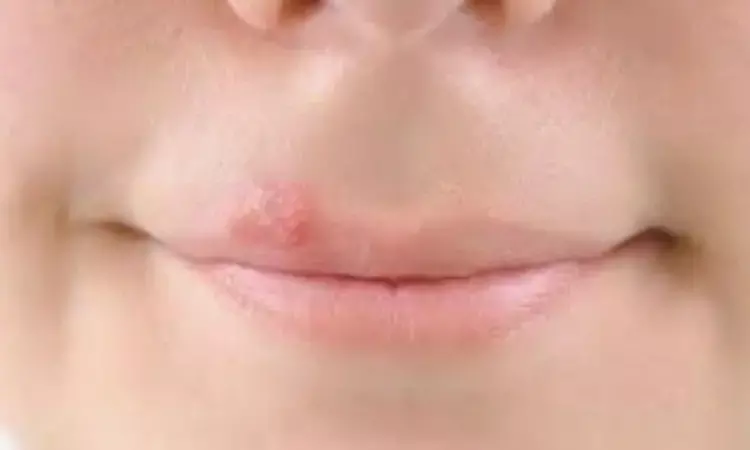- Home
- Medical news & Guidelines
- Anesthesiology
- Cardiology and CTVS
- Critical Care
- Dentistry
- Dermatology
- Diabetes and Endocrinology
- ENT
- Gastroenterology
- Medicine
- Nephrology
- Neurology
- Obstretics-Gynaecology
- Oncology
- Ophthalmology
- Orthopaedics
- Pediatrics-Neonatology
- Psychiatry
- Pulmonology
- Radiology
- Surgery
- Urology
- Laboratory Medicine
- Diet
- Nursing
- Paramedical
- Physiotherapy
- Health news
- Fact Check
- Bone Health Fact Check
- Brain Health Fact Check
- Cancer Related Fact Check
- Child Care Fact Check
- Dental and oral health fact check
- Diabetes and metabolic health fact check
- Diet and Nutrition Fact Check
- Eye and ENT Care Fact Check
- Fitness fact check
- Gut health fact check
- Heart health fact check
- Kidney health fact check
- Medical education fact check
- Men's health fact check
- Respiratory fact check
- Skin and hair care fact check
- Vaccine and Immunization fact check
- Women's health fact check
- AYUSH
- State News
- Andaman and Nicobar Islands
- Andhra Pradesh
- Arunachal Pradesh
- Assam
- Bihar
- Chandigarh
- Chattisgarh
- Dadra and Nagar Haveli
- Daman and Diu
- Delhi
- Goa
- Gujarat
- Haryana
- Himachal Pradesh
- Jammu & Kashmir
- Jharkhand
- Karnataka
- Kerala
- Ladakh
- Lakshadweep
- Madhya Pradesh
- Maharashtra
- Manipur
- Meghalaya
- Mizoram
- Nagaland
- Odisha
- Puducherry
- Punjab
- Rajasthan
- Sikkim
- Tamil Nadu
- Telangana
- Tripura
- Uttar Pradesh
- Uttrakhand
- West Bengal
- Medical Education
- Industry
Amenamevir's Effective and Safe for Treatment of Recurrent Herpes Labialis Confirms Phase 3 Trial

Japan: A recent phase 3, randomized, double-blind, placebo-controlled study published in the Journal of Dermatology has shown that a single, patient-initiated dose of amenamevir can significantly shorten the healing time for recurrent herpes labialis (cold sores).
Herpes labialis, a common viral infection caused by the herpes simplex virus (HSV-1), affects millions globally, causing painful lesions that can recur multiple times a year. Recurrent herpes labialis can be a source of significant discomfort and distress, especially when outbreaks are frequent. While antiviral medications like acyclovir and valacyclovir are commonly used to manage outbreaks, they typically require multiple doses over several days. Amenamevir (ASP2151) is a novel antiviral drug, a non-nucleoside analog, that works by inhibiting the activities of helicase and primase enzymes, which are crucial for the replication of herpes viral DNA.
Against the above background, Makoto Kawashima, Department of Dermatology, Tokyo Women's Medical University, Tokyo, Japan, and colleagues assessed the efficacy and safety of a single, patient-initiated dose of amenamevir for treating recurrent herpes labialis by conducting a phase 3, randomized, double-blind, placebo-controlled, multicenter study.
For this purpose, the researchers randomly assigned adult, immunocompetent patients with recurrent herpes labialis, who were able to recognize prodromal symptoms, to self-administer either amenamevir 1200 mg or a placebo. The treatment was initiated within six hours of prodromal symptom onset.
The primary efficacy endpoint was the time to complete healing of all herpes labialis lesions in the modified intention-to-treat population. Secondary endpoints included time to crusting of lesions, resolution of pain associated with herpes labialis, the proportion of patients with aborted lesions, and time to resolution of other subjective symptoms. The modified intention-to-treat population included 298 patients who self-initiated amenamevir and 307 patients who received the placebo, excluding those with aborted lesions.
The study led to the following findings:
- Amenamevir was superior to placebo for the primary endpoint, with a median time to healing of all lesions of 5.1 days for amenamevir versus 5.5 days for placebo (hazard ratio 1.24).
- Time to crusting of all lesions was significantly shorter with amenamevir compared to placebo.
- No significant differences were observed between the two groups for other secondary outcomes.
- Treatment-emergent adverse events were generally mild in both groups.
- Two moderate adverse events occurred, but they were unrelated to the study treatment.
- No severe adverse events were reported.
"A single patient-initiated dose of 1200 mg of amenamevir taken within 6 hours of the onset of prodromal symptoms significantly reduced the time to complete lesion healing in recurrent herpes labialis, when compared to a placebo, without any clinically significant safety issues," the researchers concluded.
Reference:
Kawashima, M., Watanabe, D., Fujio, K., & Komazaki, H. (2023). A phase 3, randomized, double-blind, placebo-controlled study evaluating a single, patient-initiated dose of amenamevir for recurrent herpes labialis. The Journal of Dermatology, 50(3), 311-318. https://doi.org/10.1111/1346-8138.16608
Dr Kamal Kant Kohli-MBBS, DTCD- a chest specialist with more than 30 years of practice and a flair for writing clinical articles, Dr Kamal Kant Kohli joined Medical Dialogues as a Chief Editor of Medical News. Besides writing articles, as an editor, he proofreads and verifies all the medical content published on Medical Dialogues including those coming from journals, studies,medical conferences,guidelines etc. Email: drkohli@medicaldialogues.in. Contact no. 011-43720751


